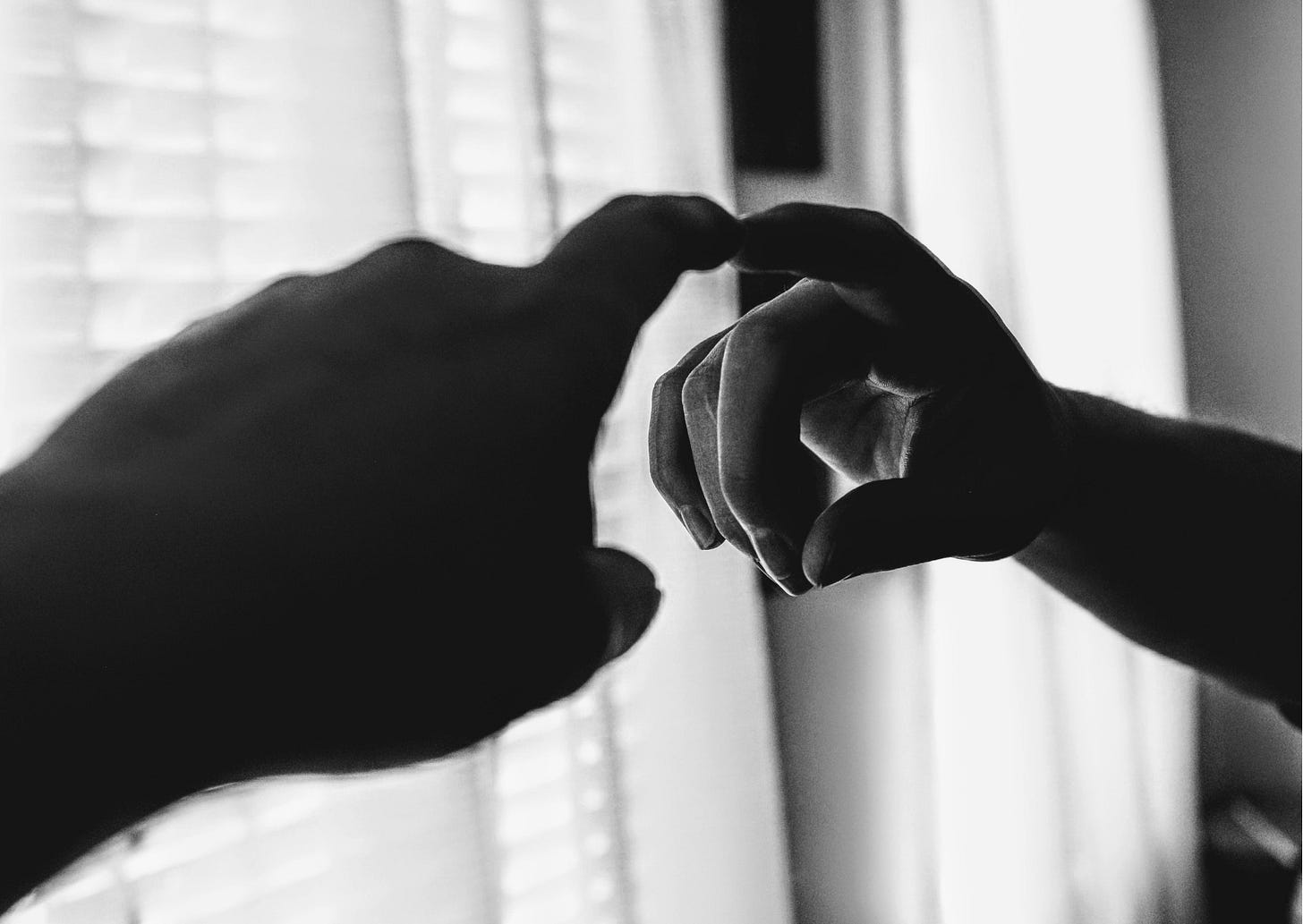The mirror and I have not always been friends. In fact, it was a complicated and unrealistic relationship where I saw a disproportionately warped reflection, and that thought – who’s the fattest of them all – was ingrained to be a derogatory form of self-hate, and often ran through my mind.
When I weighed my heaviest, around 120kgs (in my twenties and early thirties), I didn’t actually see how heavy I was. I only saw it in photographs and avoided those like the plague.
When I started removing some excess stored body fat, I’d see specific parts of myself reflected, but not the whole. I'd fixate on certain areas, like my thighs or tummy.
It’s a form of body dysmorphia. I’d dissociated from my body because it was a battlefield, something that was always “wrong” and needed to be beaten into submission. When you’re consistently beating yourself up and you’re repeatedly told how you look is wrong, it’s easier to disconnect from your body than it is to live in it.
That’s the thing about mirrors, they don’t show what’s going on inside.
When I started the process of transforming myself and my relationship to my body, let’s face it, I was mostly focused on removing excess body fat and hopefully finding a way to be at peace with both food and myself. That was about seven years ago.
I was 48 years old, had a degenerating hip joint due to an injury in my twenties, and to my diet and lifestyle. I weighed upwards of 110kgs – I didn't exactly stand on a scale because I'd learned to hate what it said.
My body had been a battleground my entire life, from a fat kid with chronic allergies and eczema to a twelve-year-old with polycystic ovaries and a teen with migraines, a face full of pimples, and boils on my legs.
In my twenties, my poor diet and excess estrogen meant I rapidly gained weight and started yo-yo dieting. Infertility and the subsequent diet to lose enough weight to be eligible for IVF treatment only made things worse.
The litany of dieting and weight gain, ongoing health issues, and injuries when I pushed myself into rigorous exercise regimes continued to take a toll on my body, and the sense that it was some separate thing to be controlled and beaten into submission worsened.
I’ve told this story here before because it’s motivated me to search for answers. It took me until my fifties to finally put the pieces together and transform myself, inside and out, after reaching complete exhaustion, having lived with chronic fatigue most of my adult life. I couldn’t face another failed diet and the same repeated pattern.
Humans are complex beings, multilayered and multidimensional. As I’ve delved deeper into the roots of my relationship with my body, I’ve discovered the intricate connections between what we feel, believe, and take into ourselves – our food, what we listen to, and watch – and our physiology, our breath.
These have become my pillars of health – breath, belief, emotion, and nourishment – and the way to live a balanced, joyful life at peace with myself. Each pillar has a range of parts and is interconnected with the other three to create a holistic approach to living vibrantly.
Becoming embodied, reconnecting with the beautiful body I walk the world in, is an ongoing process.
I actively practice this connection of my inner self to my outer body by taking time throughout the day to breathe deeply and feel the sensations in my body at that moment. While hiking or trail running in the native bush (what we call our indigenous forest), I focus on the muscles I’m using, mindfully running through my body, and feeling what’s happening.
My reflection in the mirror is now much closer to what I see in photographs, and I know it’s only one small snapshot, a moment in time of my exterior self.
It’s taken six years and I’m still unravelling deep-seated beliefs, releasing old stored emotions and trauma, and tweaking how I nourish myself to feel and live vibrantly. Managing my nervous system is key and an ongoing process.
Looking back, even to just this past year, I can see the miracle of this journey and my transformation. I’m a different person.
It’s easy to be fixated on the reflection we see in the mirror, or to actively avoid these small panes of glass so we don’t see ourselves, because we don’t like what we see. The truth is, the reflection in the mirror is rarely your whole self. Unless you take the time to look deeply into your own eyes, you’re not capturing a fraction of the person you truly are.
I’m learning to love my reflection and look deeply into my own eyes. I love who I’ve become and am excited to find out how I’ll evolve as I continue my transformation journey.
What do you see when you look in the mirror? Is it someone you love wholly?




